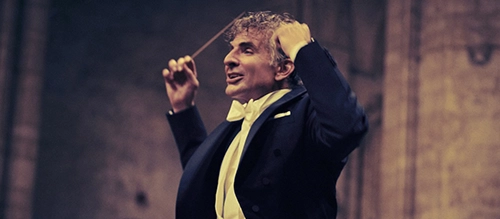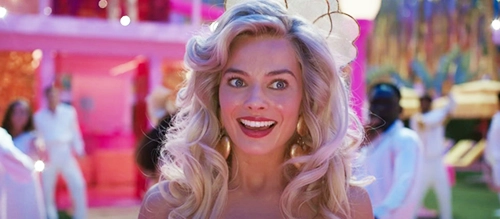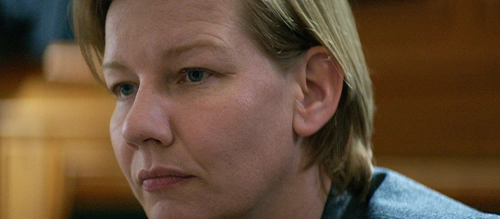2024 Oscars Best Picture Nominees Ranked
8. Maestro

With some of the year’s most stunning shot composition and a number of scenes that marry cinematography, wardrobe, makeup, direction and performance in such a manner that will take your breath away, it should be of little surprise that Bradley Cooper has made it two Best Picture nominations from two for his work on Maestro.
Following his acclaimed pseudo-musical A Star Is Born (a Best Picture nominee in 2019) with another music-adjacent piece, Cooper this time presents a biography on famed conductor, composer and writer Leonard Bernstein, and particularly his relationship to his wife (and actress turned television personality in her own right) Felicia Montealegre Cohn Bernstein. Cooper leads his own project with a distinct and engrossing lead performance, Carey Mulligan arguably stealing the show with a performance equally as grand but which excels even further in smaller, more intimate moments.
There are few feature films from 2023 that can hold a candle to the visual excellence of Maestro and particularly the cinematography of 2024 Oscars nominee Matthew Libatique, to whom much of the class and excellence of this visual presentation is owed. Libatique’s embrace of a boxed format, but particularly of different cameras and a wide range of colour palettes, ensure that each period told throughout this decades long story is representative of the rich history of cinema apparent in each time. The choices of Libatique and Cooper to hold long takes across most major scenes also allow for each performance to resonate, illuminating the talents of both Cooper and Mulligan but perhaps more importantly giving us a way into the film’s heart in spite of its lack of character interrogation (especially regarding Leonard Bernstein’s real-life beliefs and controversies) and at times overbearing and unrealistic dialogue.
Maestro is a case of several year-leading filmmaking elements being counterbalanced by several year-average filmmaking elements, the result being a visually resplendent Best Picture nominee with some of the year’s most outstanding technical and performative work, but one that cannot begin to rival the all-round achievements of the best of the best.
Recommended for you: 2019 Oscars Best Picture Nominees Ranked
7. Barbie

As one-half of the biggest cultural phenomenon that cinema produced in at least half a decade, Barbenheimer, Barbie not only drew audiences to cinemas but did so whilst celebrating the fears, anxieties, excitement, and journeys of women and girls of the millennial generation and under in a manner not before seen on such a massive scale. Greta Gerwig helped to solidify (in the heads of studio executives) how women can lead blockbusters and can make billions, but more importantly she breathed life into a film with an innate relatability that will last for generations.
Barbie tells of Margot Robbie’s titular Barbie (stereotypical Barbie, that is) one day awakening spiritually and realising that her glamourous and joyous life isn’t all that it was made out to be. Her feet are flat, she’s contemplating death, and she is super anxious. She journeys from the world of Barbie to the real world to explore what exists beyond and to hopefully get her feet fixed, but what she discovers is a patriarchal culture geared towards enriching the experiences of men and demeaning women. It is a metaphor for the moment of awakening we all experience in adolescence, Barbie’s journey specifically representative of the unique trials that women must face when finally realising that life exists beyond their adolescent family lives, their own Barbie Dream Houses.
Barbie’s status as a cultural phenomenon perhaps overshadows the high level of artistry on offer in this Best Picture nominee, its blockbuster status drawing more eyes and therefore more opinions than most of the 2024 class, but there is a distinct quality to the filmmaking that exists not only as a representation of director and co-screenwriter Greta Gerwig’s filmography to date, but as an expansion upon it. The same woman-centred explorations are apparent, as are the coming-of-age themes and specific but universally relatable cultural touchstones, but this time they’re presented on huge sound stages and with bold choices in costume, set design and the colour palette. Through Barbie, Gerwig’s very modern style is married to classic presentation ideals, the sound stages and musical numbers ensuring not just a good time at the movies but a question from the filmmaker herself: what would movies of the Golden Era have looked like if more of them were led by women?
There are films in this year’s class of Best Picture nominees that have a greater depth of enriching performances and others with greater scores, more exceptional cinematography (at least in the traditional sense), and more detailed explorations of their themes, but as a celebration and deconstruction of Hollywood (sound stages and year-topping musical numbers and all), as well as an important moment in time for the industry, Barbie is among the best and most important of a terrific year.
Recommended for you: Greta Gerwig: The Essential Collection
6. Anatomy of a Fall

Justine Triet became just the third woman in history to win the prestigious Cannes Palme d’Or in 2023 (the previous winners being Jane Campion for The Piano and Julia Ducournau for Raw), and with an airtight script, some of the year’s finest performances, and a timely allegory for gender inequality, she has also become just the ninth woman to ever be nominated in the Oscars Best Director category. Anatomy of a Fall is one of the three women-directed films nominated for Best Picture in 2024, a record for any given year, and is arguably among the greatest courtroom dramas ever released.
Told in German, French and primarily English, the France-set film tells of a German woman (played by 2024 Oscars nominee Sandra Hüller) who is accused of murdering her French husband (Samuel Theis) who is suspected to have been pushed from the attic window of their house. The film invites us to analyse the evidence, deconstruct their relationship, and pass our verdict, then forcefully reminds us that such voyeuristic trials by public are ill-conceived and inevitably balanced against those oppressed in society, in this case women. Though this is one of few films nominated for Best Picture that does not feature highlight-reel cinematography, the filmmakers’ desire to present the themes of societal sexism ensure that the script and performances hold up to the immense scrutiny they invite, and that through all of its work to send a message Anatomy of a Fall never loses sight of the emotion that is central to all year-topping films.
Though at times limited by the rules and dictations of its courtroom drama sub-genre, Anatomy of a Fall is an undertaking oozing the class of the season’s most experienced heads even though Triet is only a first-time nominee. It creates intrigue, teases resolution, and then stabs you between the ribs, delighting in its own depth of detail and overarching purpose. This isn’t a film that can be judged on quality from a still image, but it can be judged from a whole scene, whether that’s a verbal altercation between the couple that is so uncomfortable it will make you squirm or whether it’s witnessing the deterioration of a dog’s health without the comfort of the camera looking away.
Anatomy of a Fall’s acting is simply intimidating, and the work the actors are bringing to life is of the highest quality and with the most contemporarily relevant of purposes, but its ties to its sub-genre limit its ability to express itself visually to the degree that the better Best Picture nominees do in the class of 2024, and your overall enjoyment might be limited to how much you’re willing to concentrate throughout its 2 hours and 32 minutes of runtime.

